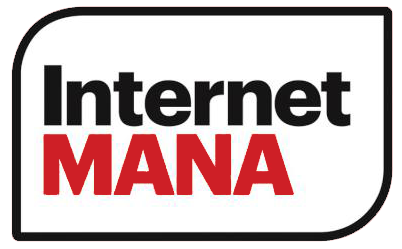Policy | Economic Justice
A just economy is one where everybody is able to afford the cost of living and enjoy a decent quality of life. In a just economy, tax rates are fair. Those who earn more pay a higher proportion of their income in tax, and those who earn less pay a lower proportion. A just economy is one where enough tax is collected to run high quality, free public services like health and education, and where there is enough money to also invest in what is important, such as whānau wellbeing, job creation, affordable state housing, reducing pollution, and public transport.
To achieve this, MANA advocates for a major overhaul of the tax system to create a much fairer system. Currently, much of the income and profit amassed by high-income earners is not taxed at all.
Official reports show the gap between high and low income earners continues to grow, and it is estimated that 285,000 children live in poverty. Many whānau have been forced to borrow to make up the falling real value of wages over the last 25 years, meaning that low income whānau have become easy bait for loan sharks. Cuts to health and education continue to be made to cover the costs of bailouts and handouts to corporates, making low income whānau even less well off.
Tax policy needs to be much fairer across the board, low income whānau need greater incomes, and the cost of living needs to go down.
Long term, MANA supports the need to build a new sustainable monetary system to replace the current capitalist, privatized system that is so fundamentally flawed in order to significantly reduce the cost of living and share wealth much more fairly.
MANA policy priorities are to:
- Raise the incomes of low-income earners
- Increase the minimum wage to $18.80 per hour (a living wage) and index it at 66% of the average wage to ensure it remains a living wage.
- Support changes to employment relations laws that give workers greater bargaining power to negotiate wages and conditions with their employers, including the right to strike.
- Guarantee workers’ security of hours by requiring employers to offer extra hours to existing staff, up to 40 hours per week, before hiring new staff.
- Repeal youth rates for workers aged 16-17 years.
- Increase benefit levels to provide a livable income.
- Eliminate economic discrimination against the children of beneficiaries, as happens in the current ‘Working for Families’ policy.
- Work towards implementing a Universal Basic Income where everyone in Aotearoa aged 18 and over would receive a minimum, liveable, tax free income after which progressive tax would kick in. This would eliminate the huge costs involved in administering the current shame and blame WINZ system, and do much to end poverty and address growing inequality.
- Reduce the cost of living
- Buy or take back key state assets, like power companies and telecommunications, at the price paid for them (or their market value – whichever is the lower), exclusive of the millions in fees and incentives used to sell them.
- Abandon the market-based provision of essential services such as electricity and water in favour of non-profit and sustainable provision of those services.
- Reduce loan debt
- Regulate loan sharks and restrict banks’ profit margins on loans, credit cards, and mortgages.
- Overhaul the tax system to make it fair
- Abolish GST which hits low-income earners hardest.
- Significantly increase the tax take by introducing a tax on financial speculation, called the ‘Hone Heke tax’ (chopping down taxes such as GST), which will be designed using examples of similar taxes introduced overseas. It will be used to replace the $15 billion collected by GST each year, and invest in key policies such as job creation and whānau wellbeing.
- Reduce the tax paid by low income earners by not taxing the first $27,000 earned and reintroduce a progressive tax scale where high income earners pay a higher proportion of income tax.
- Introduce a significant capital gains tax on all but the family home and Māori land.
- Collate all sources of income, including from shares, bonds, property, and investments, to be taxed at an individual’s personal tax rate.
- Reintroduce inheritance tax to be paid on a progressive scale for inheritances valued at over $500,000. This would exclude land held communally on behalf of iwi.
- Regulate family trusts and other tax avoidance devices to ensure no tax advantage applies to these or similar structures.
- Expand funding to the IRD to investigate and eliminate corporate tax loopholes.


